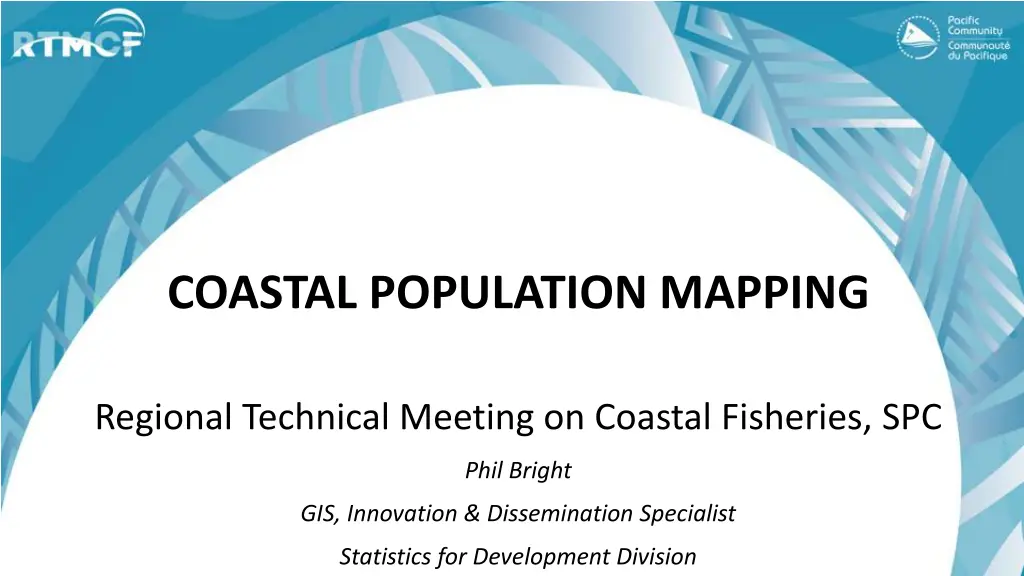
Coastal Population Mapping Techniques and Results
Explore the detailed process and outcomes of coastal population mapping for regional fisheries and disaster management, including buffer zones and data sources used.
Download Presentation

Please find below an Image/Link to download the presentation.
The content on the website is provided AS IS for your information and personal use only. It may not be sold, licensed, or shared on other websites without obtaining consent from the author. If you encounter any issues during the download, it is possible that the publisher has removed the file from their server.
You are allowed to download the files provided on this website for personal or commercial use, subject to the condition that they are used lawfully. All files are the property of their respective owners.
The content on the website is provided AS IS for your information and personal use only. It may not be sold, licensed, or shared on other websites without obtaining consent from the author.
E N D
Presentation Transcript
COASTAL POPULATION MAPPING Regional Technical Meeting on Coastal Fisheries, SPC Phil Bright GIS, Innovation & Dissemination Specialist Statistics for Development Division
Background SDD received many requests for coastal population figures by PICTs, SPC colleagues and Development Partners: Coastal fisheries / food security applications Disaster preparedness / management Public health
Partners Collaboration between SPC , WorldFish and ANCORS with funding support from ACIAR and Australian Aid.
Buffer Zones Three buffer zones were chosen for the analysis: 1km - those living on the coast 5km - those who are within walking distance of the coast and 10km - those who are possibly too far to walk to the coast 10 5 1 South-West Santo
Which data was used? Range of national and global datasets to provide the best estimate available in each of the 22 PICTs HH locations (GPS) from Population Censuses Global population grids Landscan, Gridded Population of the World (GPWv4) Reliability of estimates varies among countries as a function of geographic area of the landmass and the availability of georeferenced information 10 5 1
10 5 1
Results Dist. to Coast (km) With PNG (%) Without PNG (%) 1 26 57 5 10 45 54 90 97 Online visualisation - http://sddinnovations.spc.int/coastal- population-mapping/
Questions How useful is this to you? In the next iteration of the project would adding elevation be useful? Something else?
